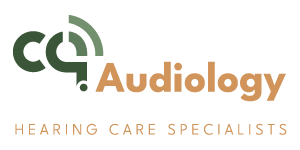You may have hearing loss if you frequently ask people to repeat themselves, struggle to follow conversations in noisy places, or turn up the TV volume higher than others prefer. Watch for signs like missing doorbells or phone rings, feeling that people are mumbling, or experiencing fatigue from straining to hear. If you notice these symptoms, don’t wait – understanding the specific type of hearing loss will help determine your best treatment options.
Common Signs and Symptoms of Hearing Loss

Although hearing loss can develop gradually, several key signs may indicate you’re experiencing reduced hearing ability. You might frequently ask others to repeat themselves or feel that people are mumbling. Turning up the TV or radio volume higher than others prefer can be another warning sign.
You may have trouble following conversations in noisy environments like restaurants or struggle to understand people when you can’t see their faces. Phone conversations might become more challenging, and you could find yourself missing important sounds like doorbells or alarms. High-pitched sounds, such as children’s voices or birds chirping, may become less noticeable. If you’re experiencing social withdrawal or fatigue from straining to hear conversations, these could also signal hearing loss.
Understanding Different Types of Hearing Loss
While these signs can help you identify potential hearing problems, knowing which type of hearing loss you’re experiencing is key to getting proper treatment. There are three main types: conductive, sensorineural, and mixed hearing loss.
Conductive hearing loss occurs when sound can’t travel through your outer or middle ear, often due to earwax buildup, infections, or damaged eardrums. Sensorineural hearing loss happens when there’s damage to your inner ear or auditory nerve, typically caused by aging, noise exposure, or certain medications.
Mixed hearing loss combines both types, affecting multiple parts of your ear. Each type requires different treatment approaches – from simple earwax removal to hearing aids or cochlear implants. Understanding your specific type helps your healthcare provider determine the most effective treatment plan.
Daily Situations That May Indicate Hearing Problems
Have you noticed yourself struggling to follow conversations in crowded restaurants or constantly asking people to repeat themselves? These could be early signs of hearing loss. You might also find yourself turning up the TV volume higher than others prefer or having difficulty understanding phone conversations.
Watch for these other common indicators: straining to hear someone speaking from another room, missing the doorbell or phone ringing, or feeling that people are mumbling more often. You may find group conversations particularly challenging, especially when multiple people are talking simultaneously. If you’re experiencing increased fatigue after social gatherings or avoiding social situations altogether due to communication difficulties, it’s worth paying attention to these signs and considering a professional hearing evaluation.
Risk Factors and Contributing Causes
Since hearing loss can affect anyone, it’s important to understand what puts you at greater risk. Age is a primary factor, as your hearing naturally declines after 65. Regular exposure to loud noises, whether from work environments or recreational activities like concerts, can damage your ears. Certain medications, including some antibiotics and chemotherapy drugs, may harm your hearing.

Your family history plays a role, as genetic factors can make you more susceptible to hearing loss. Medical conditions such as diabetes, high blood pressure, and repeated ear infections increase your risk. Smoking, head trauma, and obesity are also contributing factors. If you’ve served in the military or work in industries with constant noise exposure, you’re at higher risk for developing hearing problems.
Steps to Take If You Suspect Hearing Loss
If you notice changes in your hearing, taking prompt action is crucial. Schedule an appointment with your primary care physician for an initial evaluation. They’ll examine your ears and may refer you to an audiologist for comprehensive testing.
During your appointment, be prepared to discuss your symptoms, medical history, and any situations where you’re having difficulty hearing. Your audiologist will conduct various tests to measure your hearing ability across different frequencies and determine the type and extent of hearing loss.
Don’t delay seeking help if you suspect hearing problems. Early intervention can prevent further deterioration and help you maintain better communication with others. Many hearing issues are treatable, and modern hearing aids offer sophisticated solutions that can significantly improve your quality of life.
